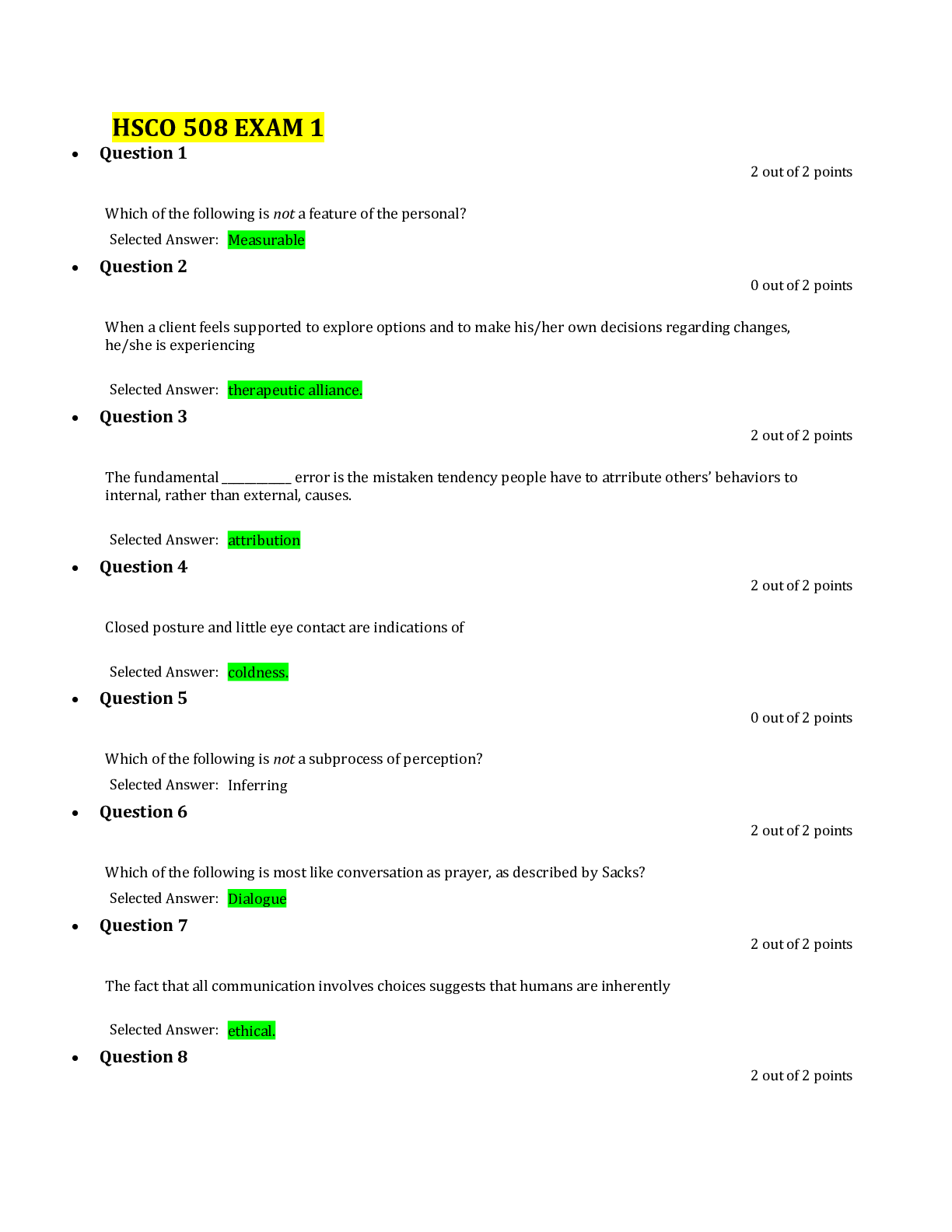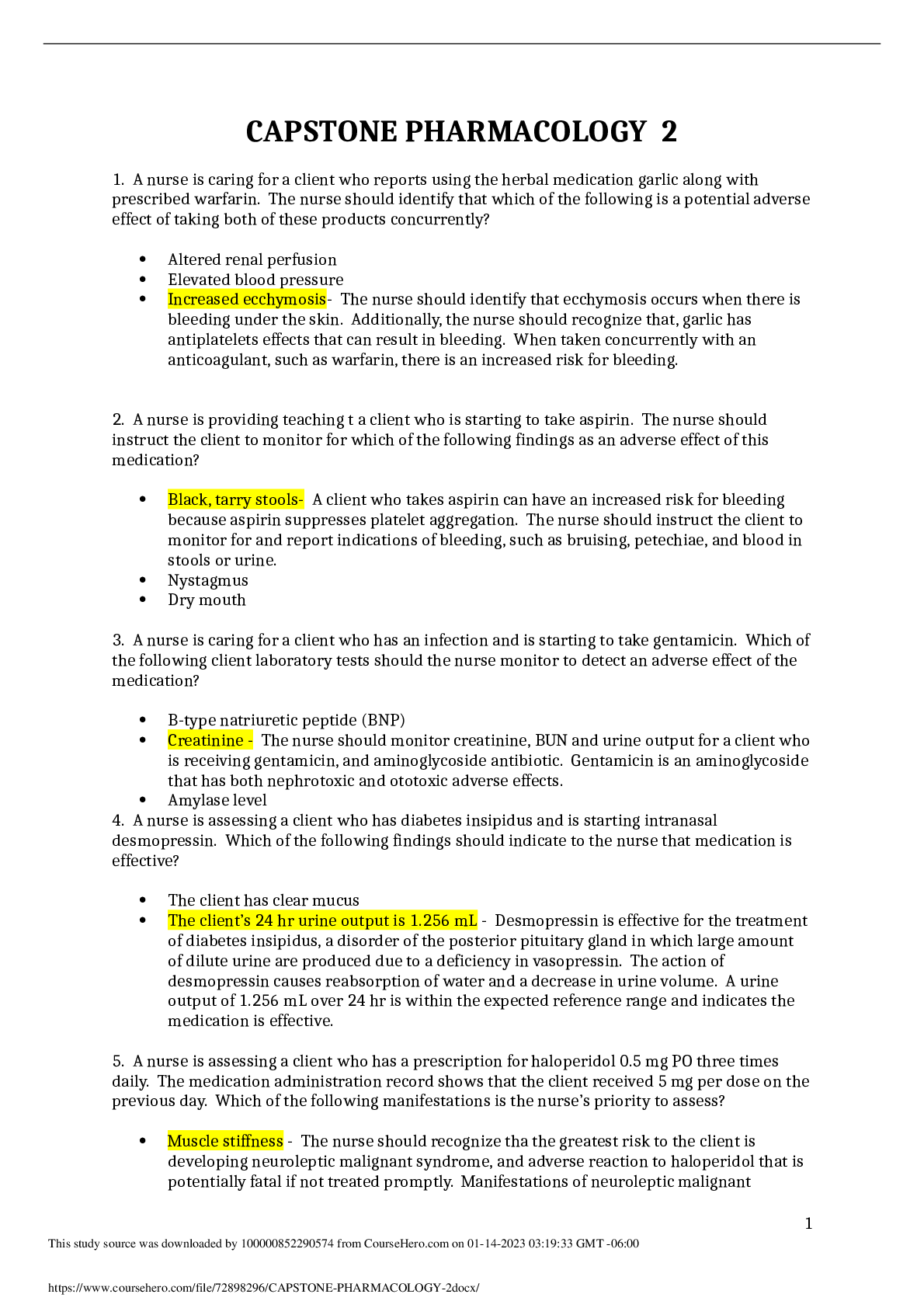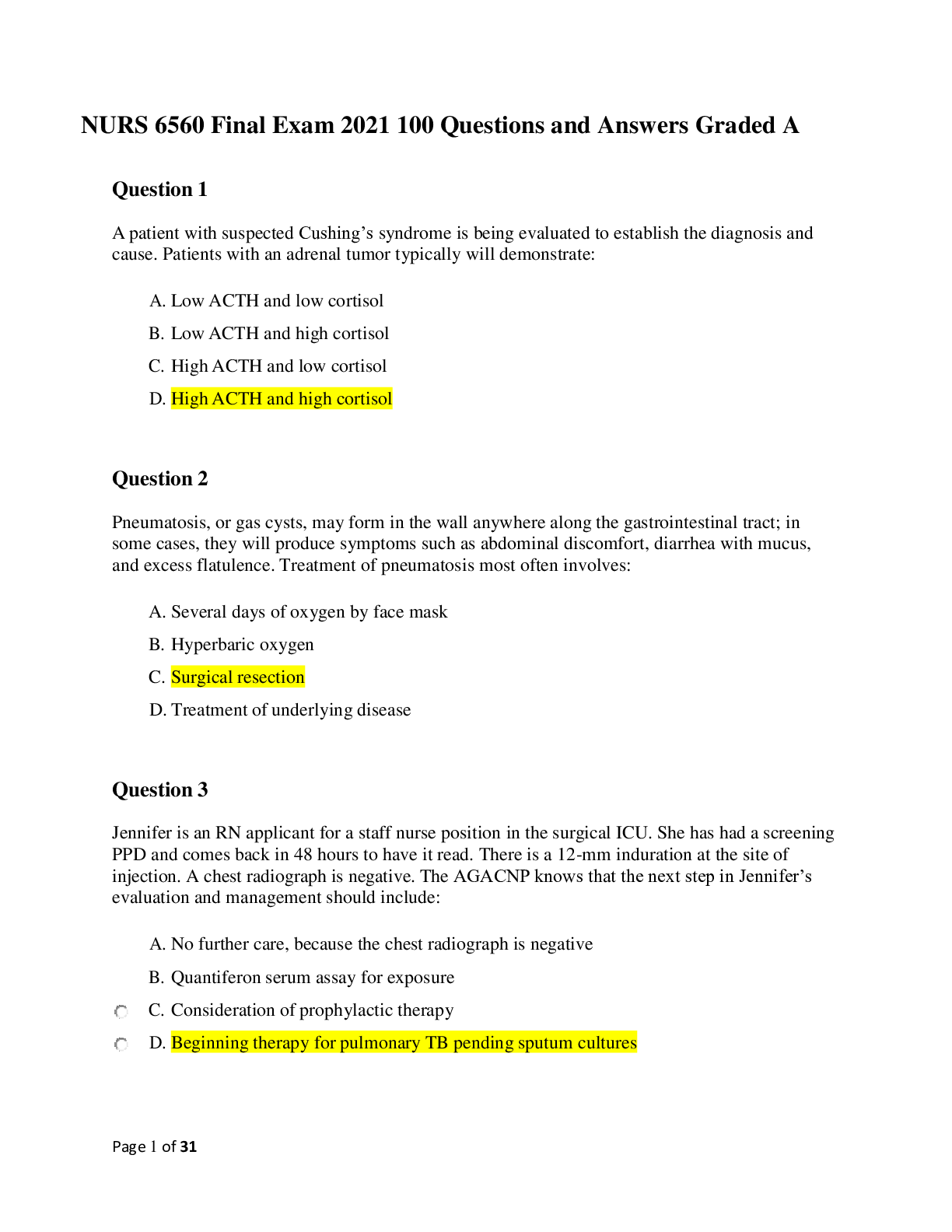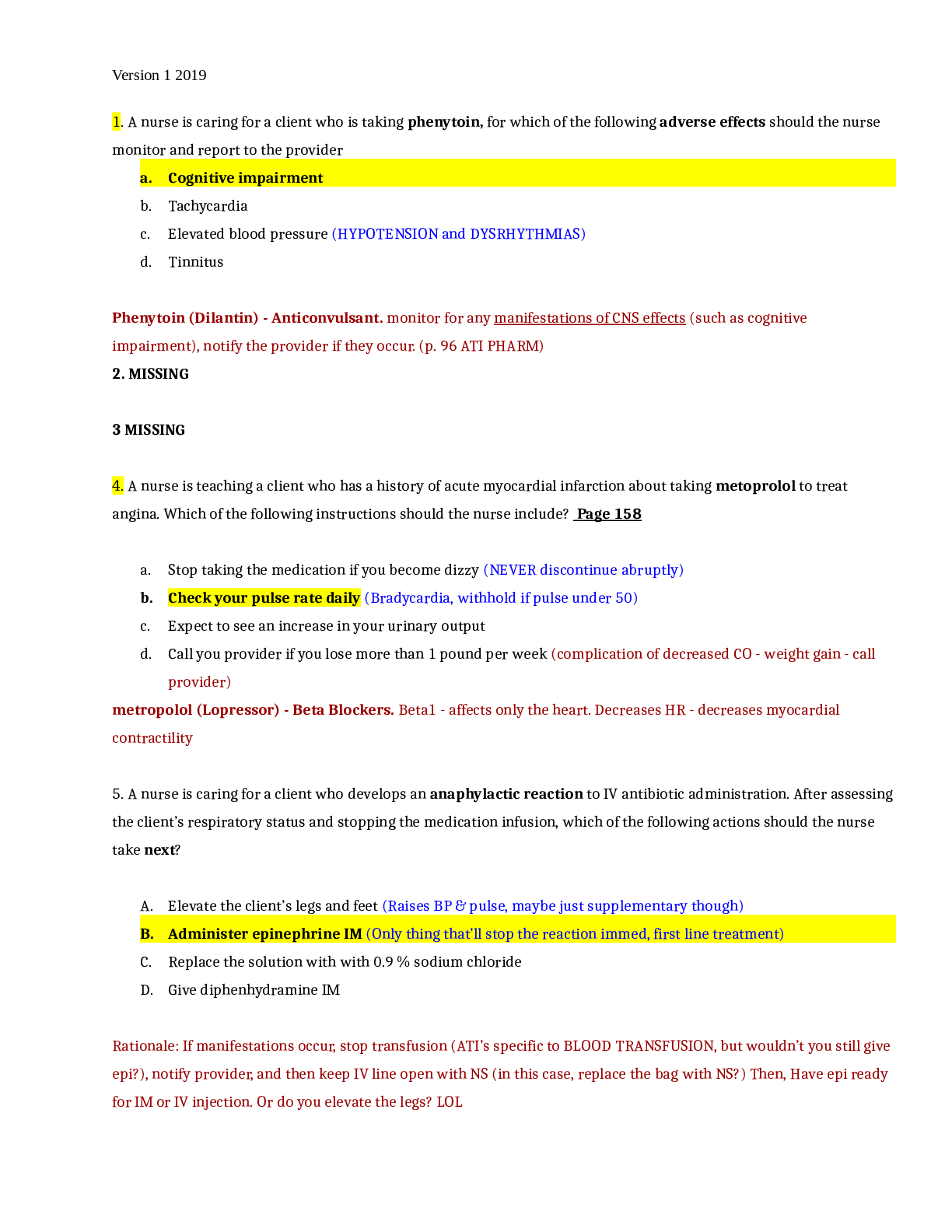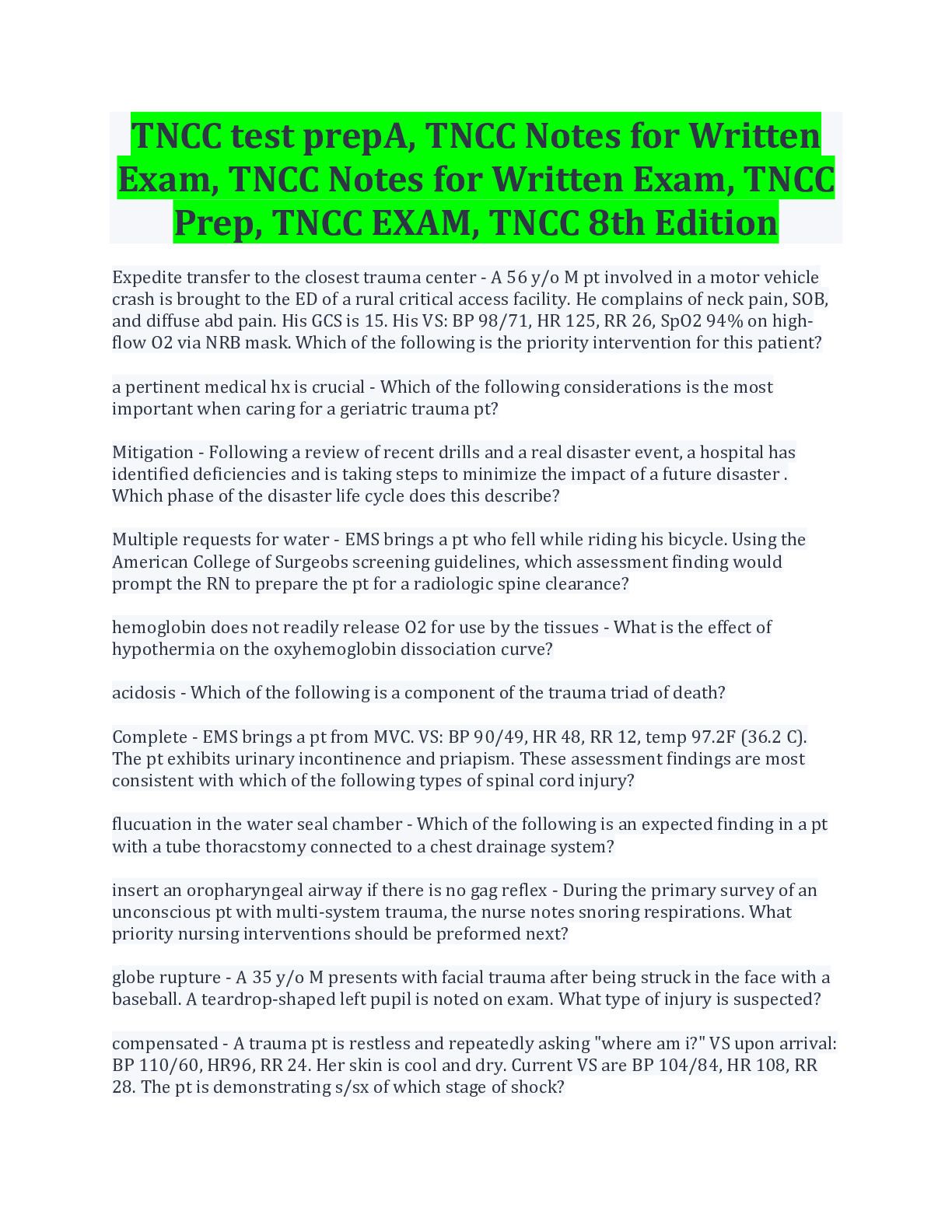*NURSING > EXAM PROCTORED > ATI PN Pharmacology Proctored Exam Review | 240 Questions and Answers with Rationale | Rated A | LAT (All)
ATI PN Pharmacology Proctored Exam Review | 240 Questions and Answers with Rationale | Rated A | LATEST 2020 /2021
Document Content and Description Below
ATI PN Pharmacology Proctored Exam Review | 240 Questions and Answers with Rationale | Rated A | LATEST 1) The health care provider has prescribed silver sulfadiazine (Silvadene) for the client wit... h a partial-thickness burn, which has cultured positive for gram-negative bacteria. The nurse is reinforcing information to the client about the medication. Which statement made by the client indicates a lack of understanding about the treatments? 1. "The medication is an antibacterial." 2. "The medication will help heal the burn." 3. "The medication will permanently stain my skin." 4. "The medication should be applied directly to the wound." Rationale: Silver sulfadiazine (Silvadene) is an antibacterial that has a broad spectrum of activity against gram-negative bacteria, gram-positive bacteria, and yeast. It is applied directly to the wound to assist in healing. It does not stain the skin. 2) A nurse is caring for a client who is receiving an intravenous (IV) infusion of an antineoplastic medication. During the infusion, the client complains of pain at the insertion site. During an inspection of the site, the nurse notes redness and swelling and that the rate of infusion of the medication has slowed. The nurse should take which appropriate action? 1. Notify the registered nurse. 2. Administer pain medication to reduce the discomfort. 3. Apply ice and maintain the infusion rate, as prescribed. 4. Elevate the extremity of the IV site, and slow the infusion. Rationale: When antineoplastic medications (Chemotheraputic Agents) are administered via IV, great care must be taken to prevent the medication from escaping into the tissues surrounding the injection site, because pain, tissue damage, and necrosis can result. The nurse monitors for signs of extravasation, such as redness or swelling at the insertion site and a decreased infusion rate. If extravasation occurs, the registered nurse needs to be notified; he or she will then contact the health care provider. 3) The client with squamous cell carcinoma of the larynx is receiving bleomycin intravenously. The nurse caring for the client anticipates that which diagnostic study will be prescribed? 1. Echocardiography 2. Electrocardiography 3. Cervical radiography 4. Pulmonary function studies Rationale: Bleomycin is an antineoplastic medication (Chemotheraputic Agents) that can cause interstitial pneumonitis, which can progress to pulmonary fibrosis. Pulmonary function studies along with hematological, hepatic, and renal function tests need to be monitored. The nurse needs to monitor lung sounds for dyspnea and crackles, which indicate pulmonary toxicity. The medication needs to be discontinued immediately if pulmonary toxicity occurs. Options 1, 2, and 3 are unrelated to the specific use of this medication. 4) The client with acute myelocytic leukemia is being treated with busulfan (Myleran). Which laboratory value would the nurse specifically monitor during treatment with this medication? 1. Clotting time 2. Uric acid level 3. Potassium level 4. Blood glucose level Rationale: Busulfan (Myleran) can cause an increase in the uric acid level. Hyperuricemia can produce uric acid nephropathy, renal stones, and acute renal failure. Options 1, 3, and 4 are not specifically related to this medication. 5) The client with small cell lung cancer is being treated with etoposide (VePesid). The nurse who is assisting in caring for the client during its administration understands that which side effect is specifically associated with this medication? 1. Alopecia 2. Chest pain 3. Pulmonary fibrosis 4. Orthostatic hypotension Rationale: A side effect specific to etoposide is orthostatic hypotension. The client's blood pressure is monitored during the infusion. Hair loss occurs with nearly all the antineoplastic medications. Chest pain and pulmonary fibrosis are unrelated to this medication. 6) The clinic nurse is reviewing a teaching plan for the client receiving an antineoplastic medication. When implementing the plan, the nurse tells the client: 1. To take aspirin (acetylsalicylic acid) as needed for headache 2. Drink beverages containing alcohol in moderate amounts each evening 3. Consult with health care providers (HCPs) before receiving immunizations 4. That it is not necessary to consult HCPs before receiving a flu vaccine at the local health fair Rationale: Because antineoplastic medications lower the resistance of the body, clients must be informed not to receive immunizations without a HCP's approval. Clients also need to avoid contact with individuals who have recently received a live virus vaccine. Clients need to avoid aspirin and aspirin-containing products to minimize the risk of bleeding, and they need to avoid alcohol to minimize the risk of toxicity and side effects. 7) The client with ovarian cancer is being treated with vincristine (Oncovin). The nurse monitors the client, knowing that which of the following indicates a side effect specific to this medication? 1. Diarrhea 2. Hair loss 3. Chest pain 4. Numbness and tingling in the fingers and toes Rationale: A side effect specific to vincristine is peripheral neuropathy, which occurs in almost every client. Peripheral neuropathy can be manifested as numbness and tingling in the fingers and toes. Depression of the Achilles tendon reflex may be the first clinical sign indicating peripheral neuropathy. Constipation rather than diarrhea is most likely to occur with this medication, although diarrhea may occur occasionally. Hair loss occurs with nearly all the antineoplastic medications. Chest pain is unrelated to this medication. 8) The nurse is reviewing the history and physical examination of a client who will be receiving asparaginase (Elspar), an antineoplastic agent. The nurse consults with the registered nurse regarding the administration of the medication if which of the following is documented in the client's history? 1. Pancreatitis 2. Diabetes mellitus 3. Myocardial infarction 4. Chronic obstructive pulmonary disease Rationale: Asparaginase (Elspar) is contraindicated if hypersensitivity exists, in pancreatitis, or if the client has a history of pancreatitis. The medication impairs pancreatic function and pancreatic function tests should be performed before therapy begins and when a week or more has elapsed between administration of the doses. The client needs to be monitored for signs of pancreatitis, which include nausea, vomiting, and abdominal pain. The conditions noted in options 2, 3, and 4 are not contraindicated with this medication. 9) Tamoxifen is prescribed for the client with metastatic breast carcinoma. The nurse understands that the primary action of this medication is to: 1. Increase DNA and RNA synthesis. 2. Promote the biosynthesis of nucleic acids. 3. Increase estrogen concentration and estrogen response. 4. Compete with estradiol for binding to estrogen in tissues containing high concentrations of receptors. . Rationale: Tamoxifen is an antineoplastic medication that competes with estradiol for binding to estrogen in tissues containing high concentrations of receptors. Tamoxifen is used to treat metastatic breast carcinoma in women and men. Tamoxifen is also effective in delaying the recurrence of cancer following mastectomy. Tamoxifen reduces DNA synthesis and estrogen response. [Show More]
Last updated: 1 year ago
Preview 1 out of 80 pages
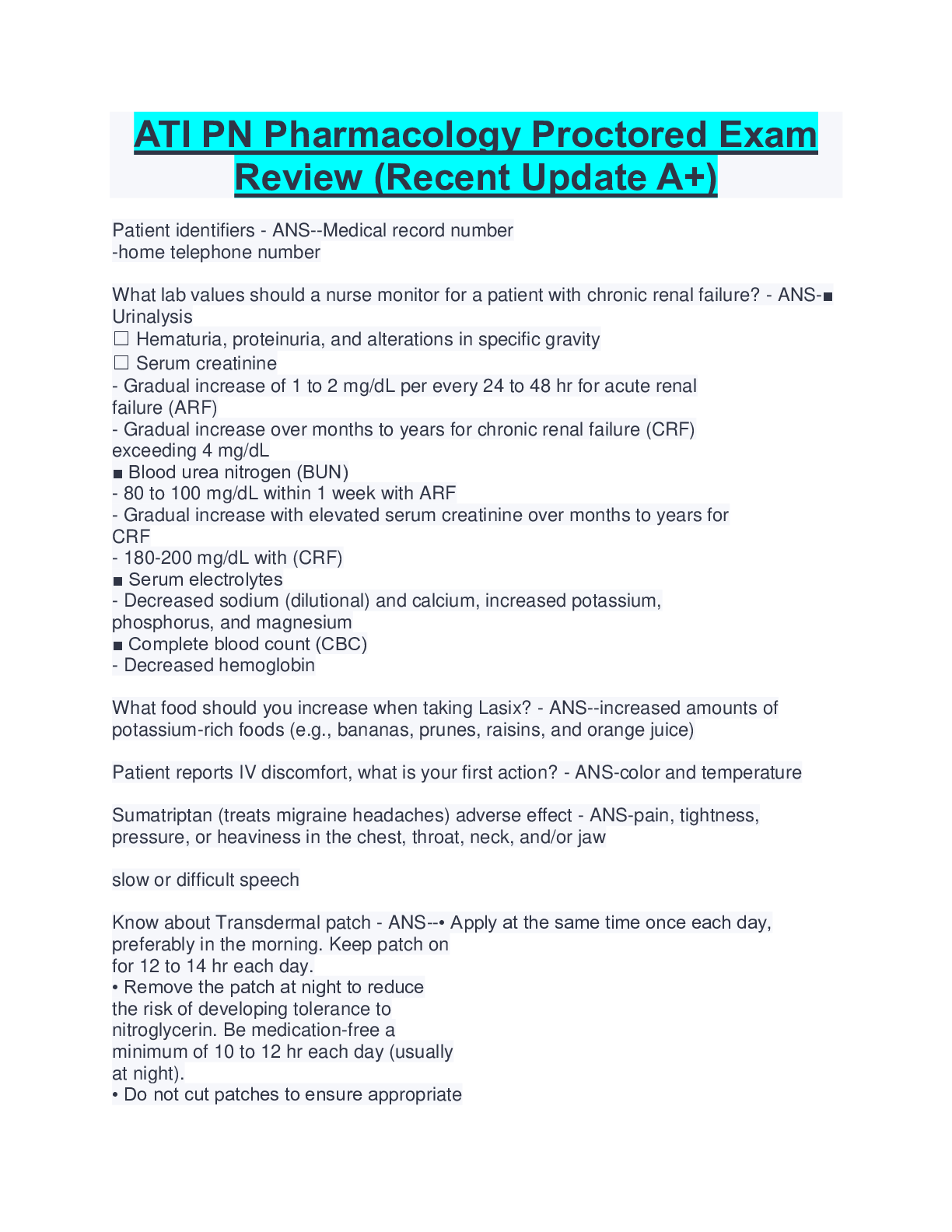
Reviews( 0 )
Document information
Connected school, study & course
About the document
Uploaded On
Dec 04, 2020
Number of pages
80
Written in
Additional information
This document has been written for:
Uploaded
Dec 04, 2020
Downloads
3
Views
178

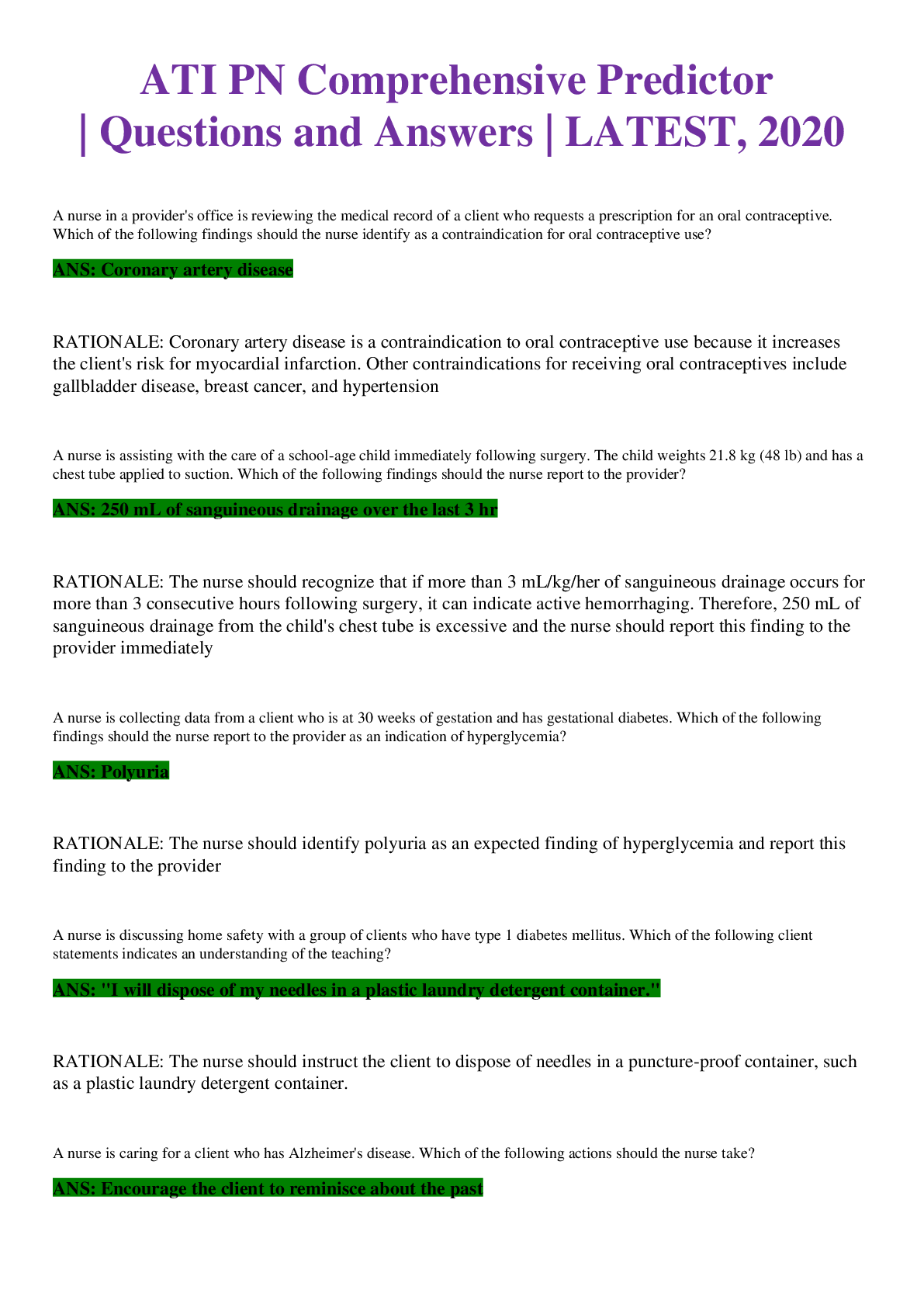
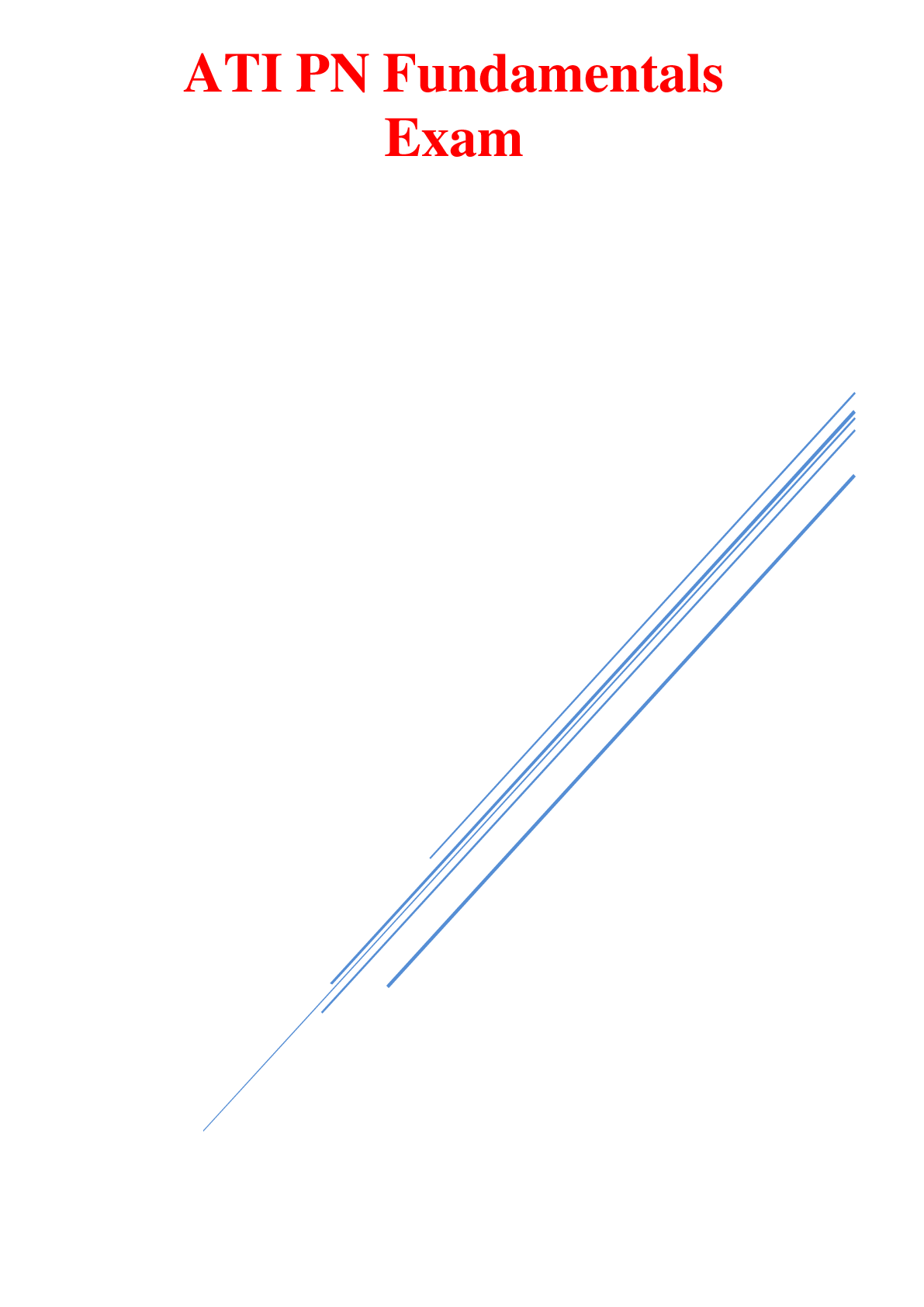
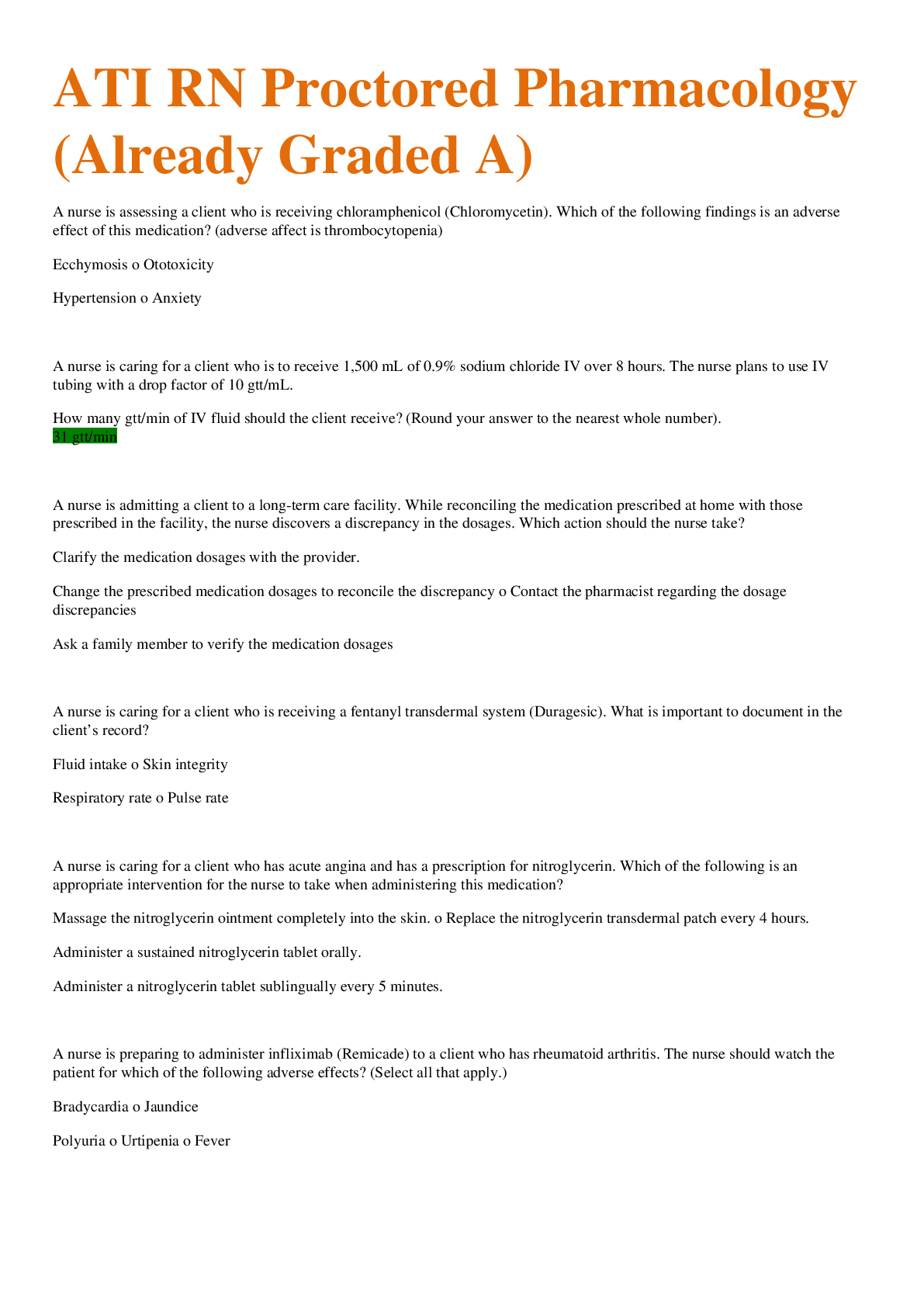
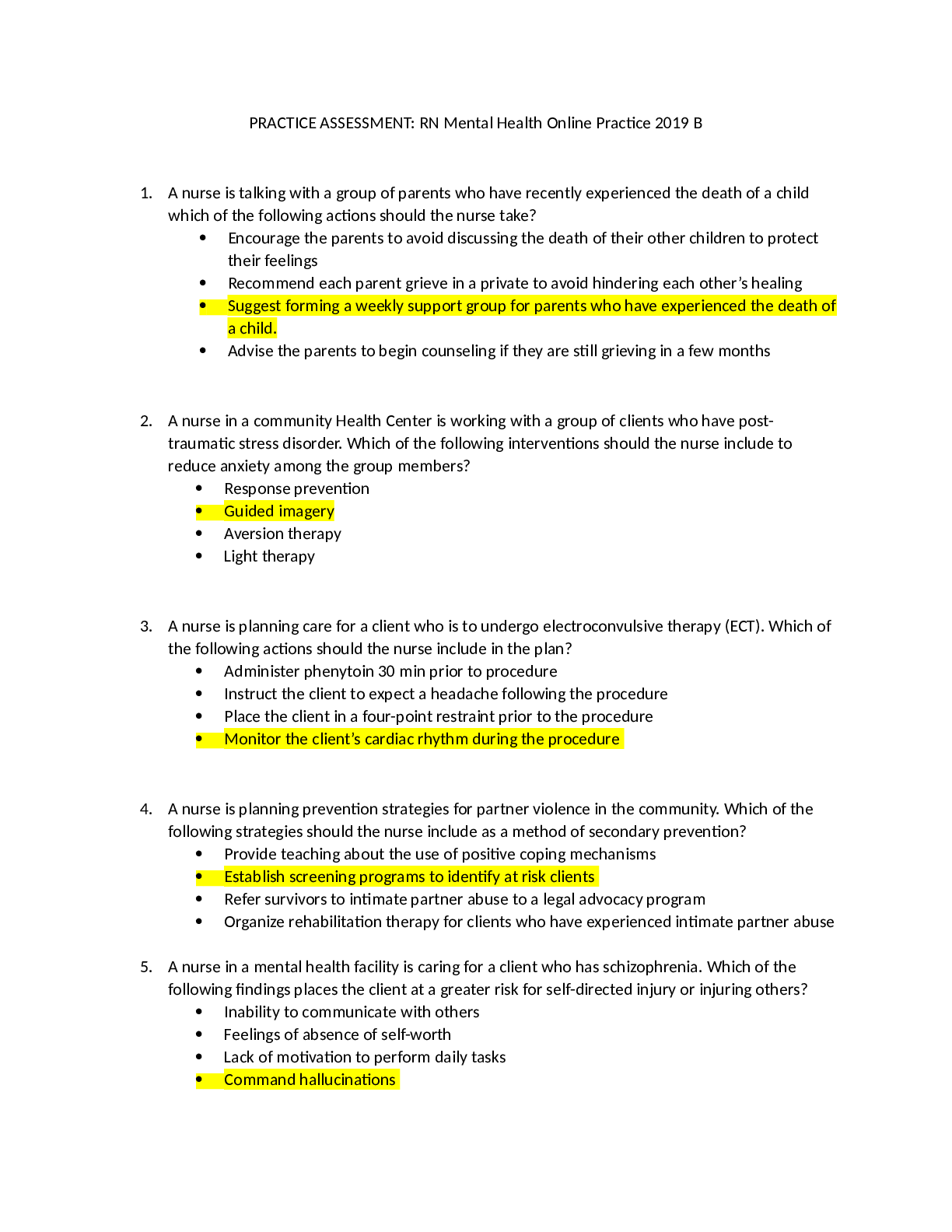

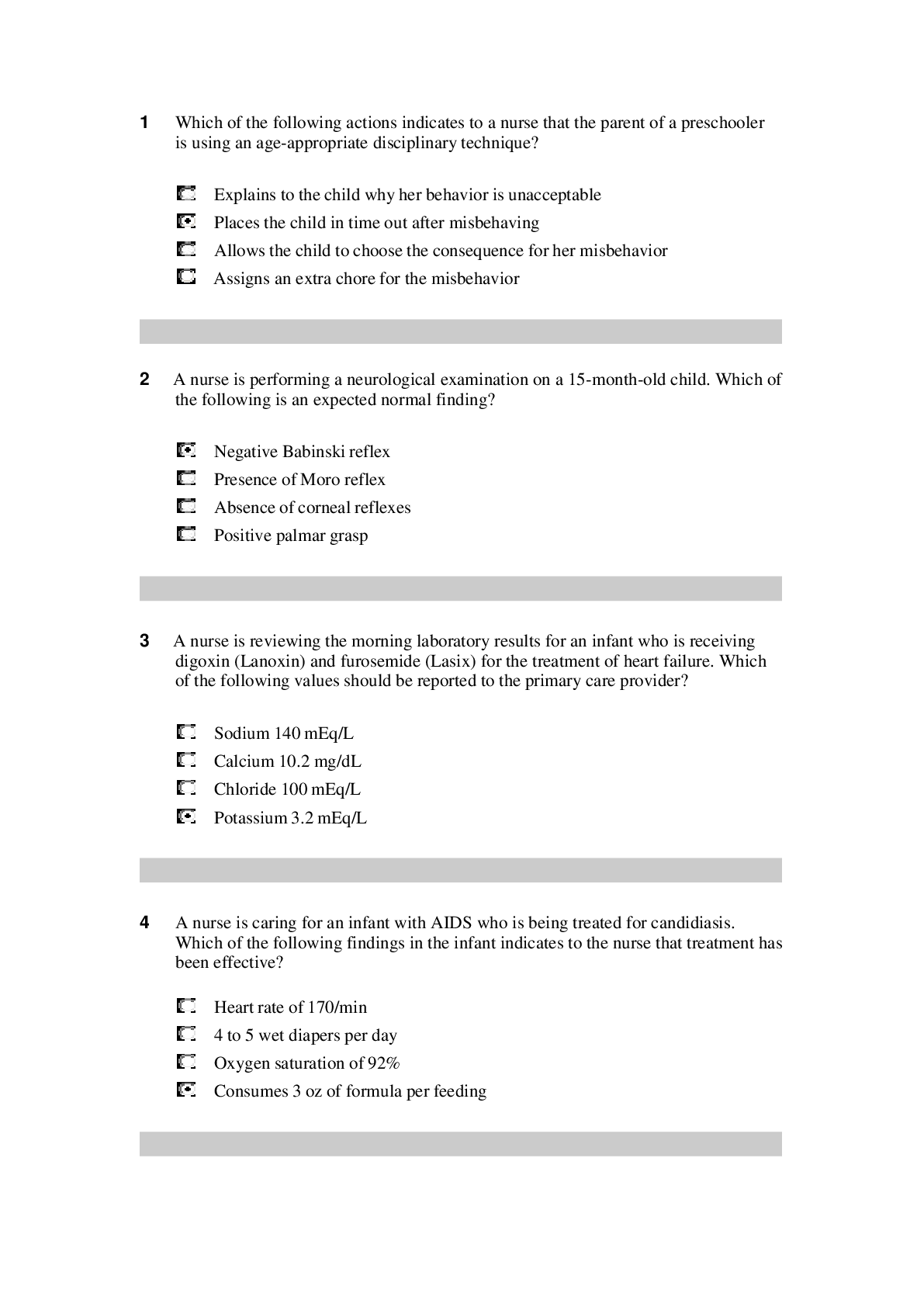
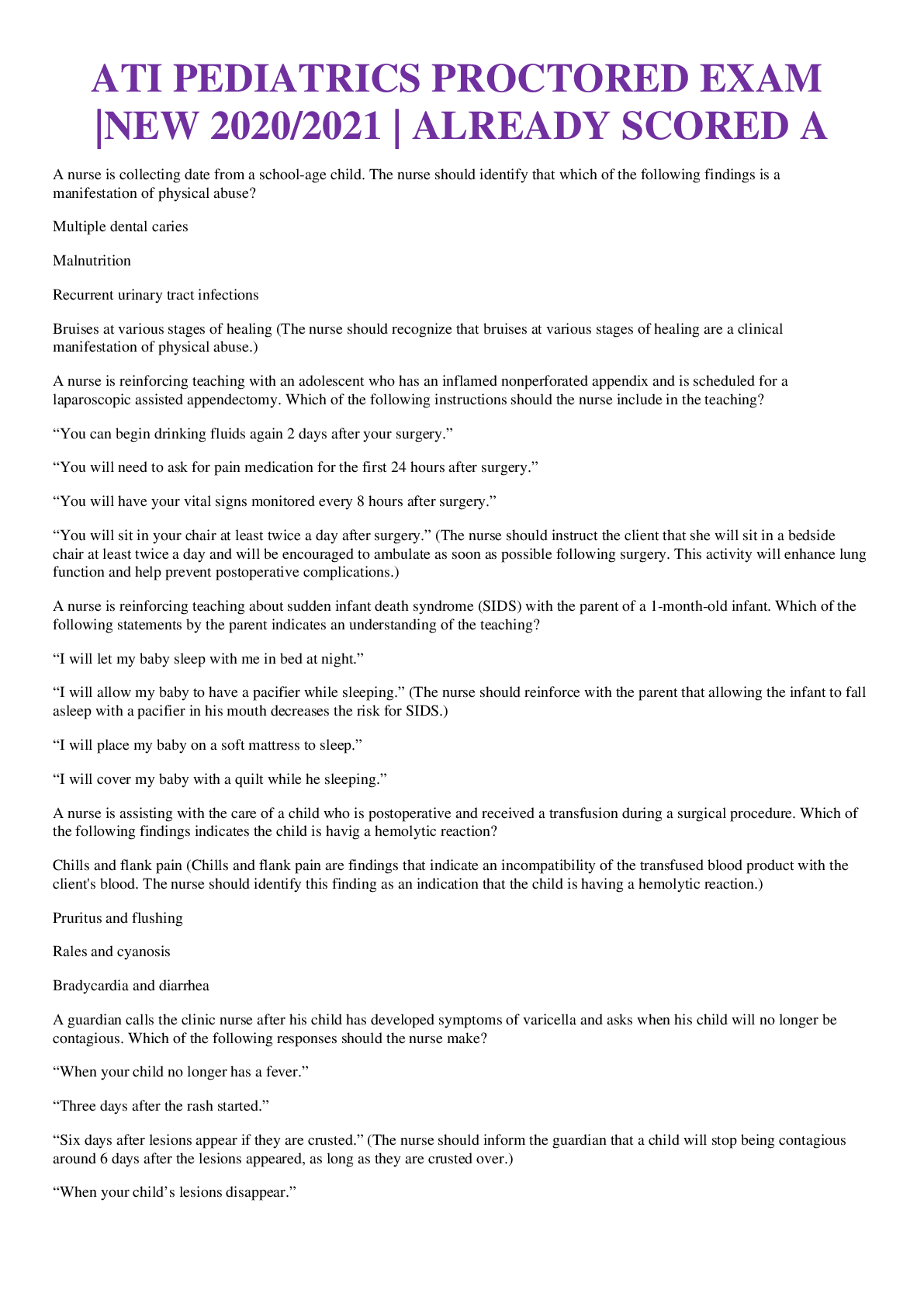
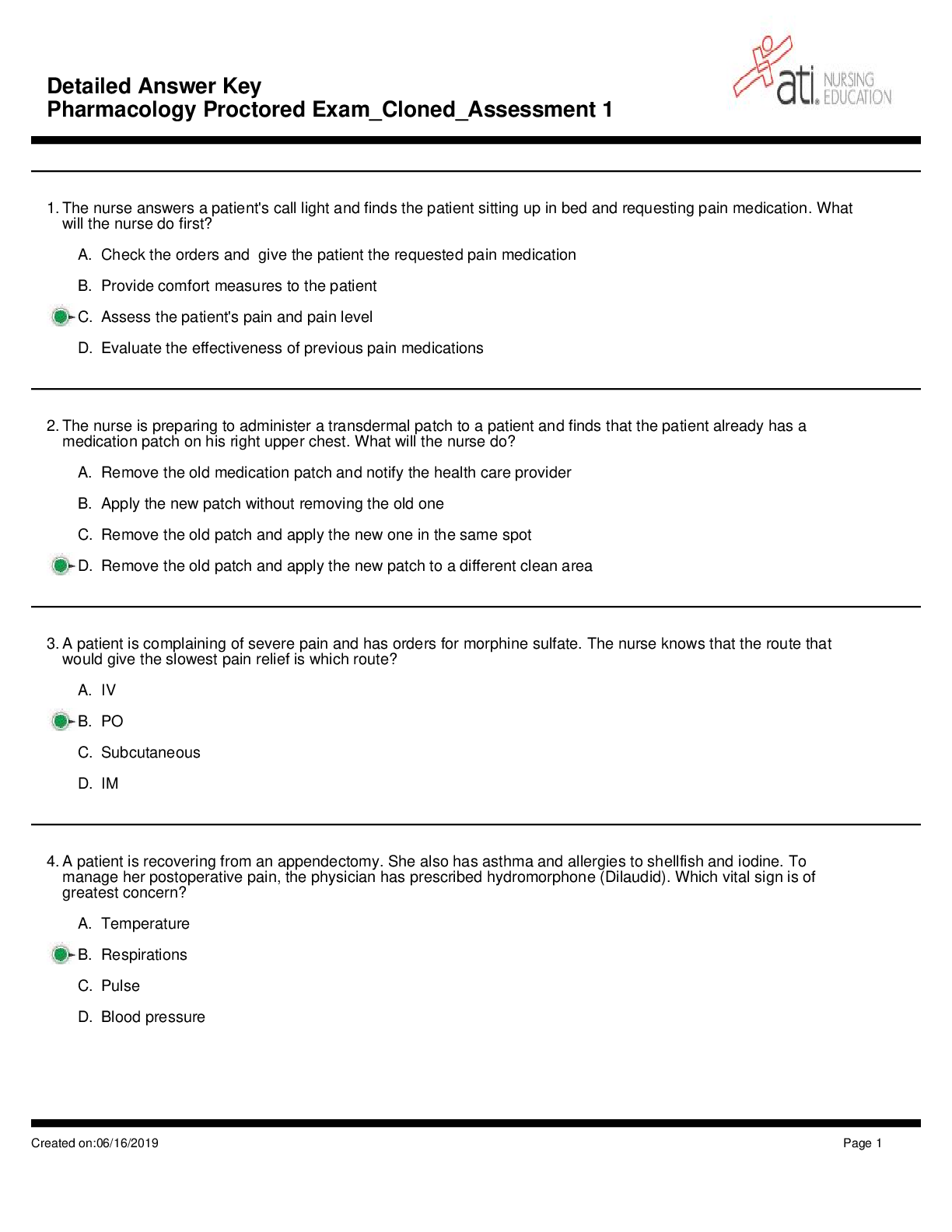
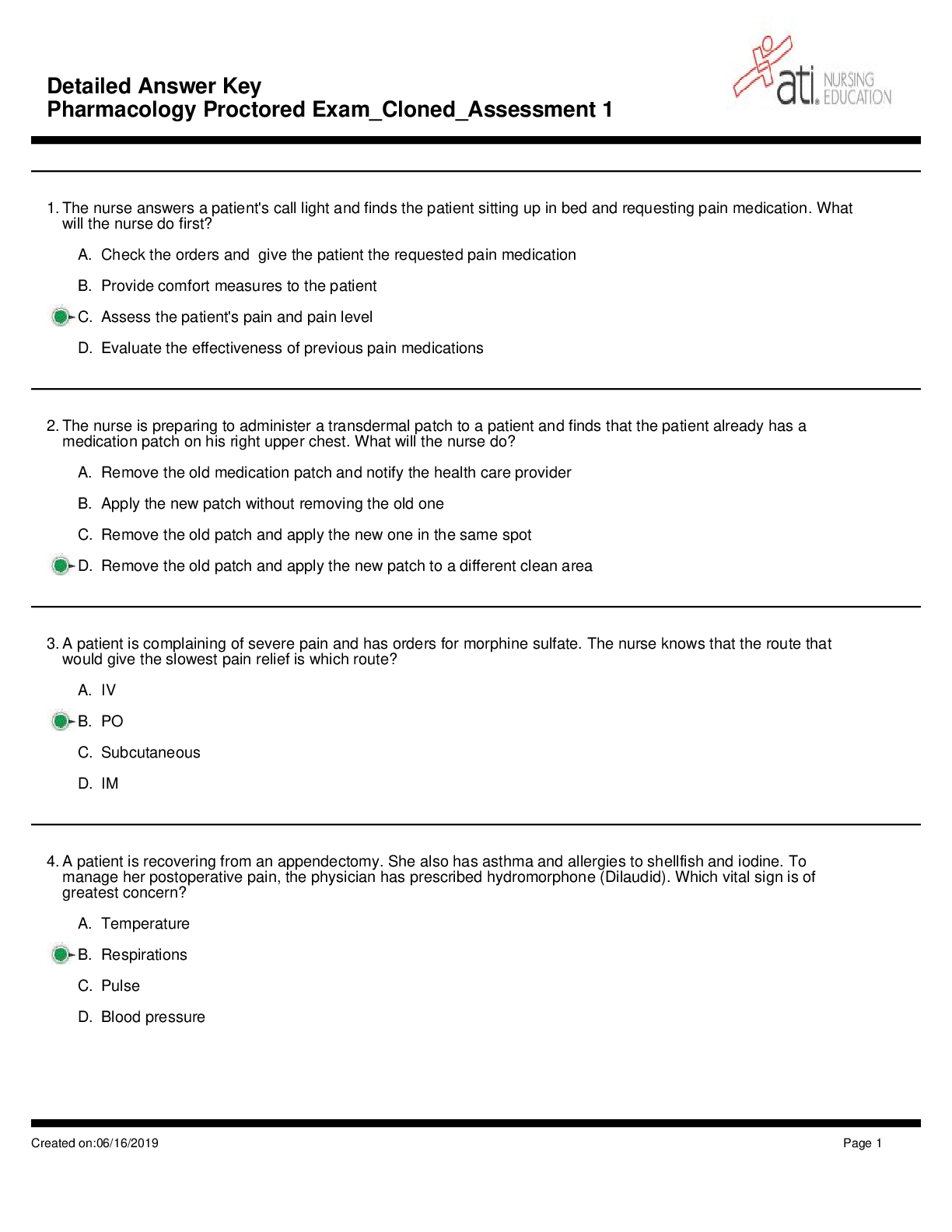
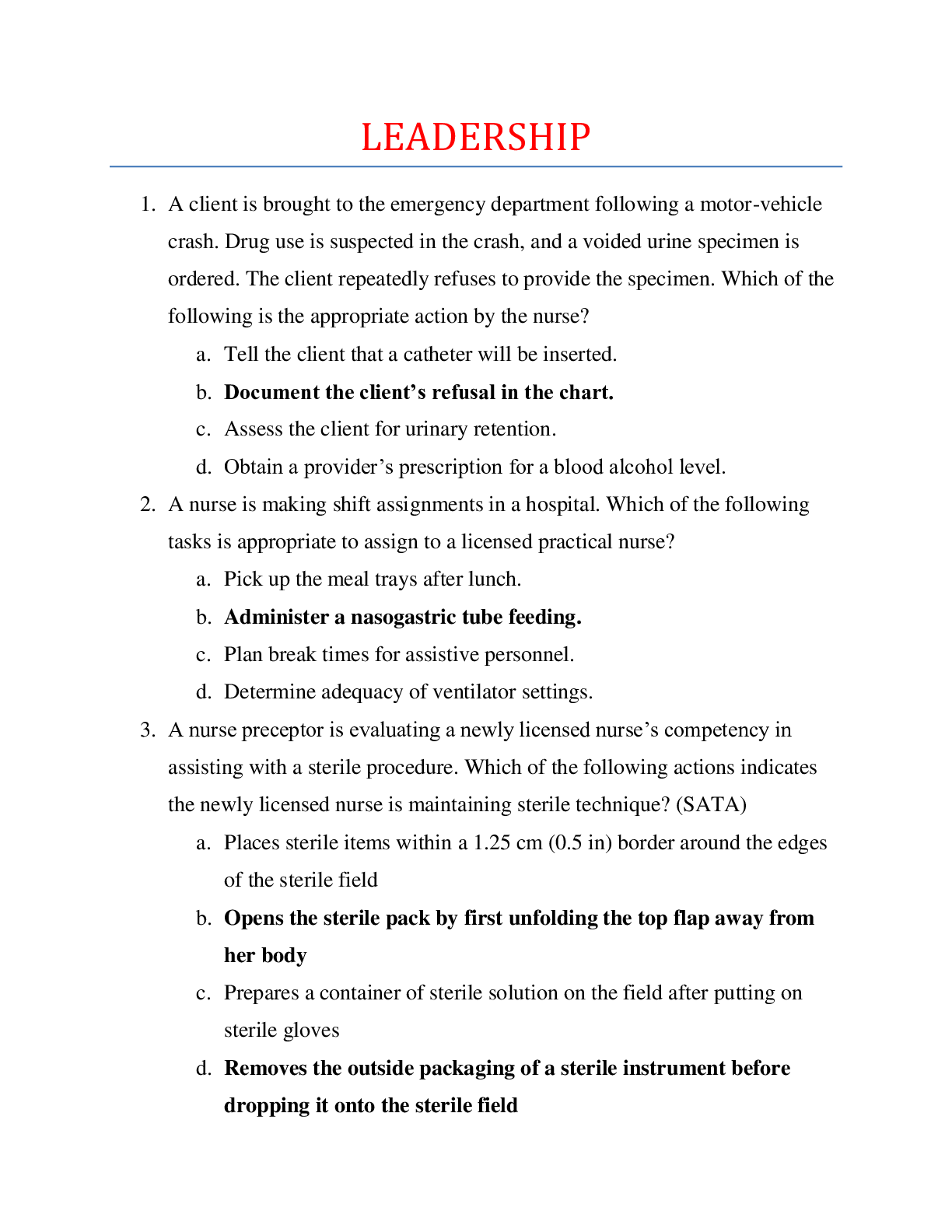
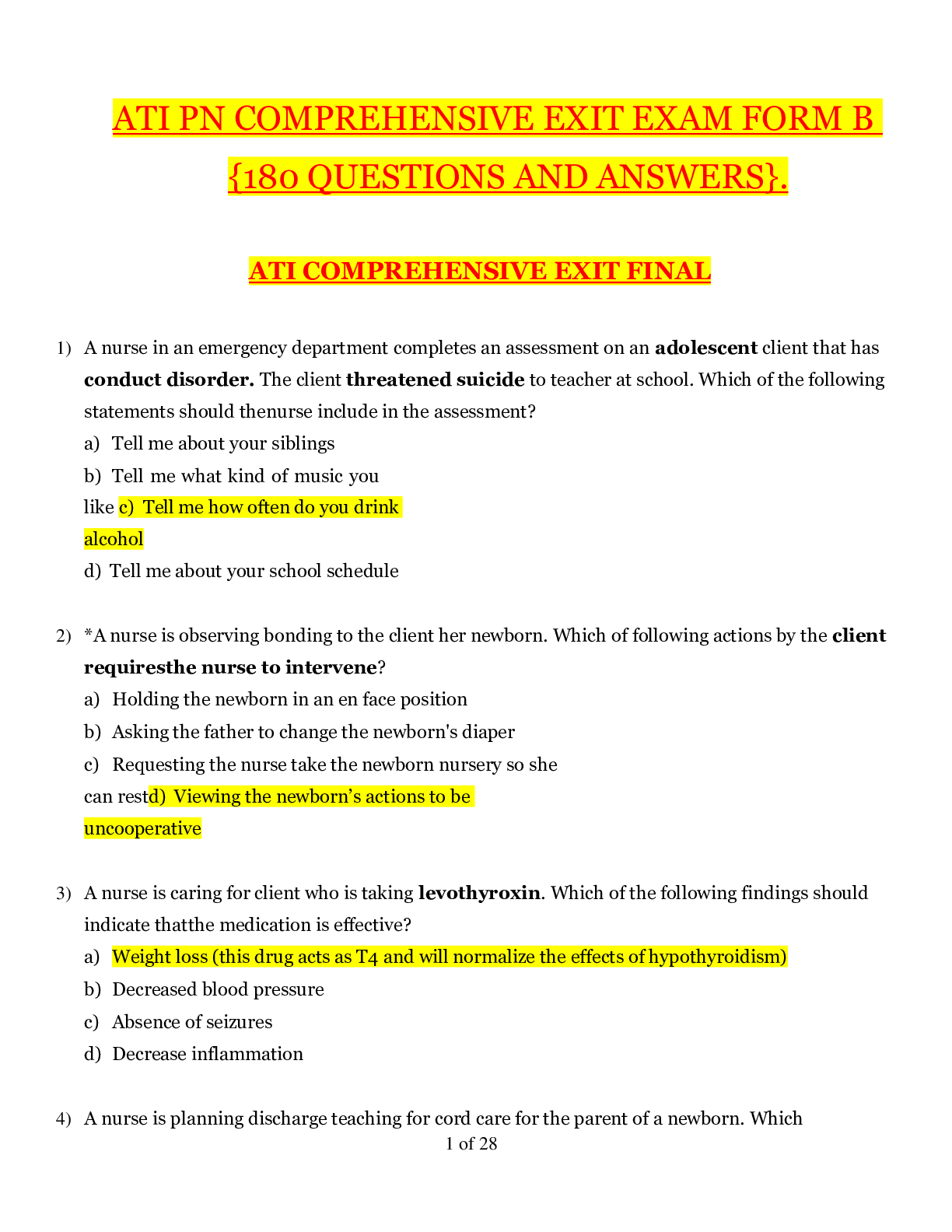

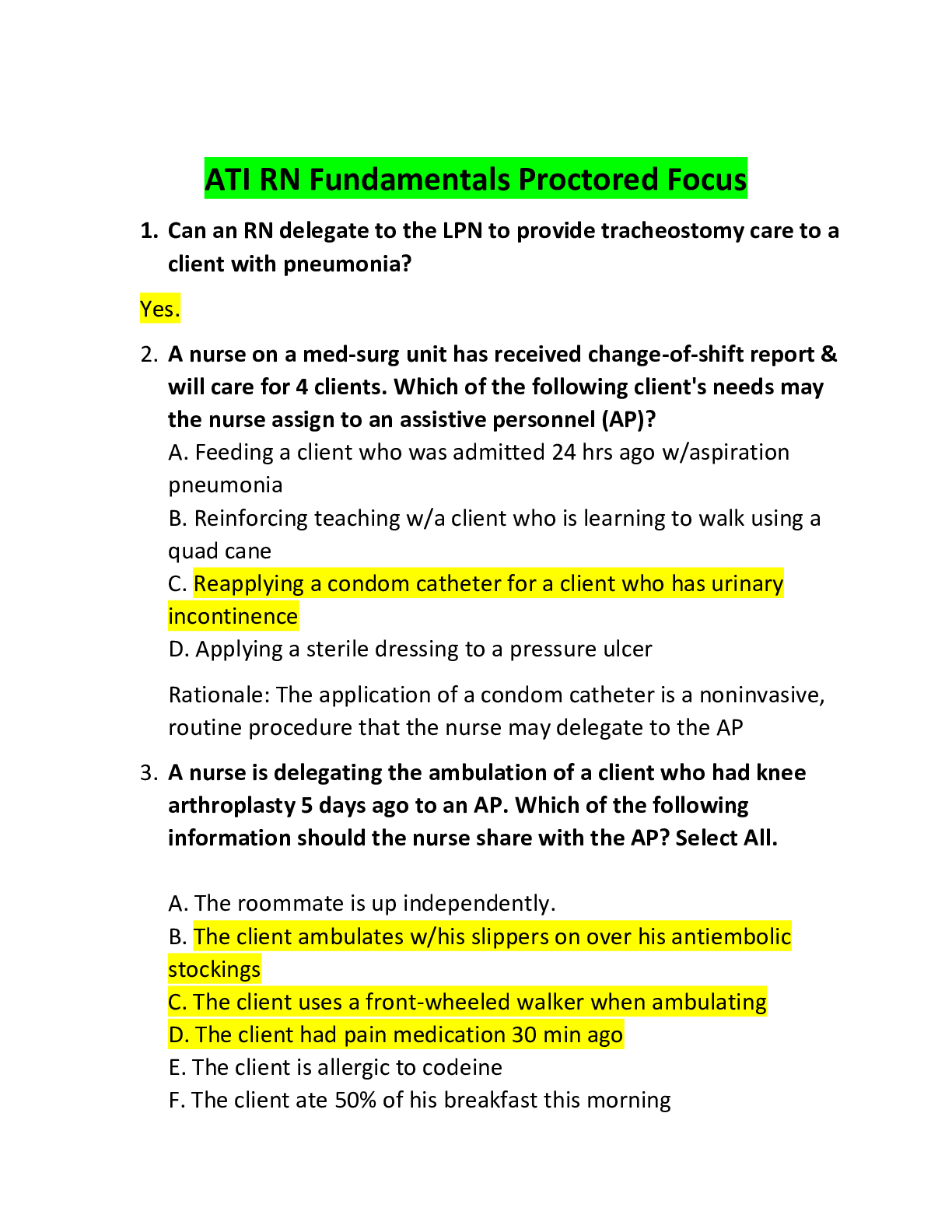
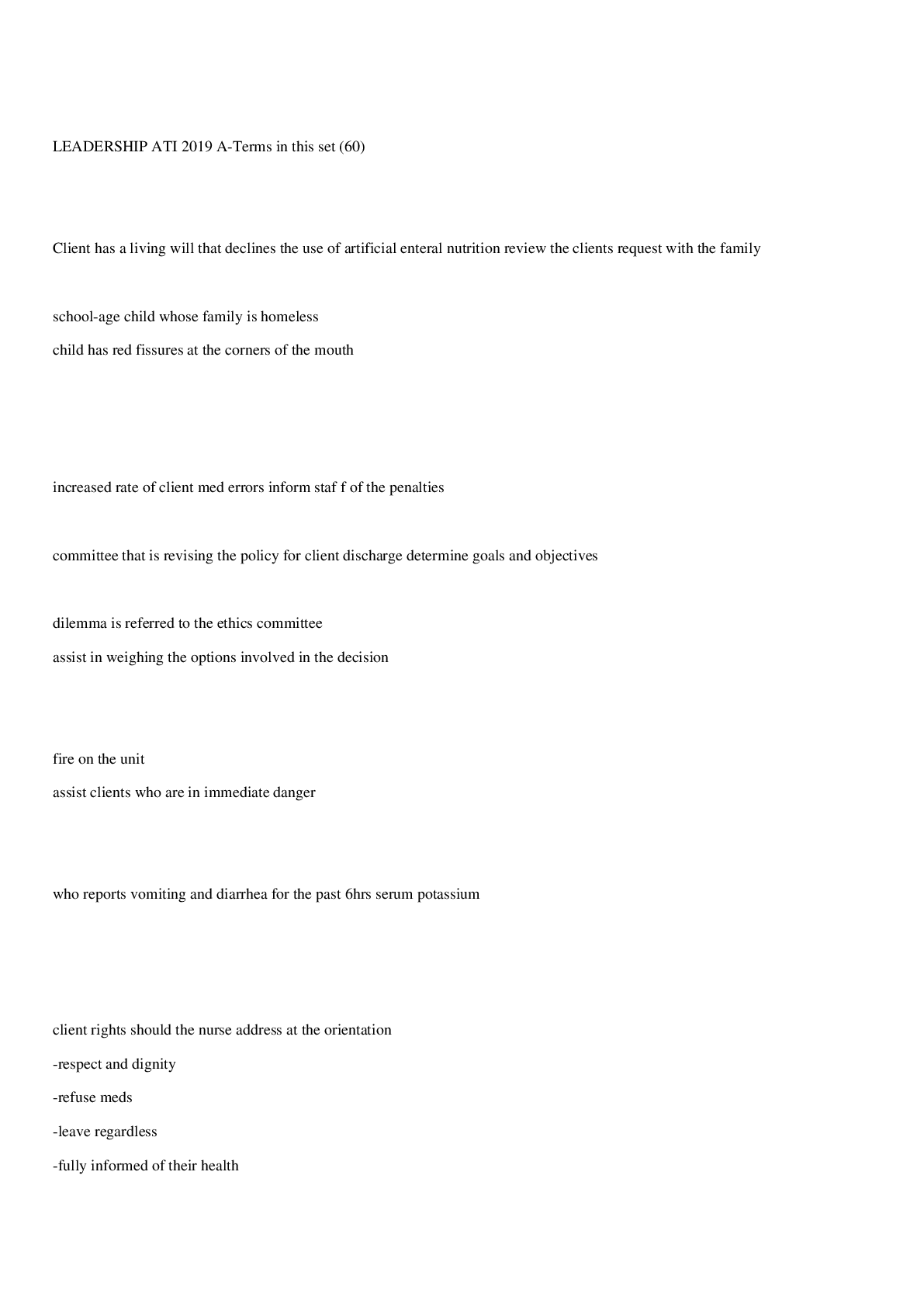
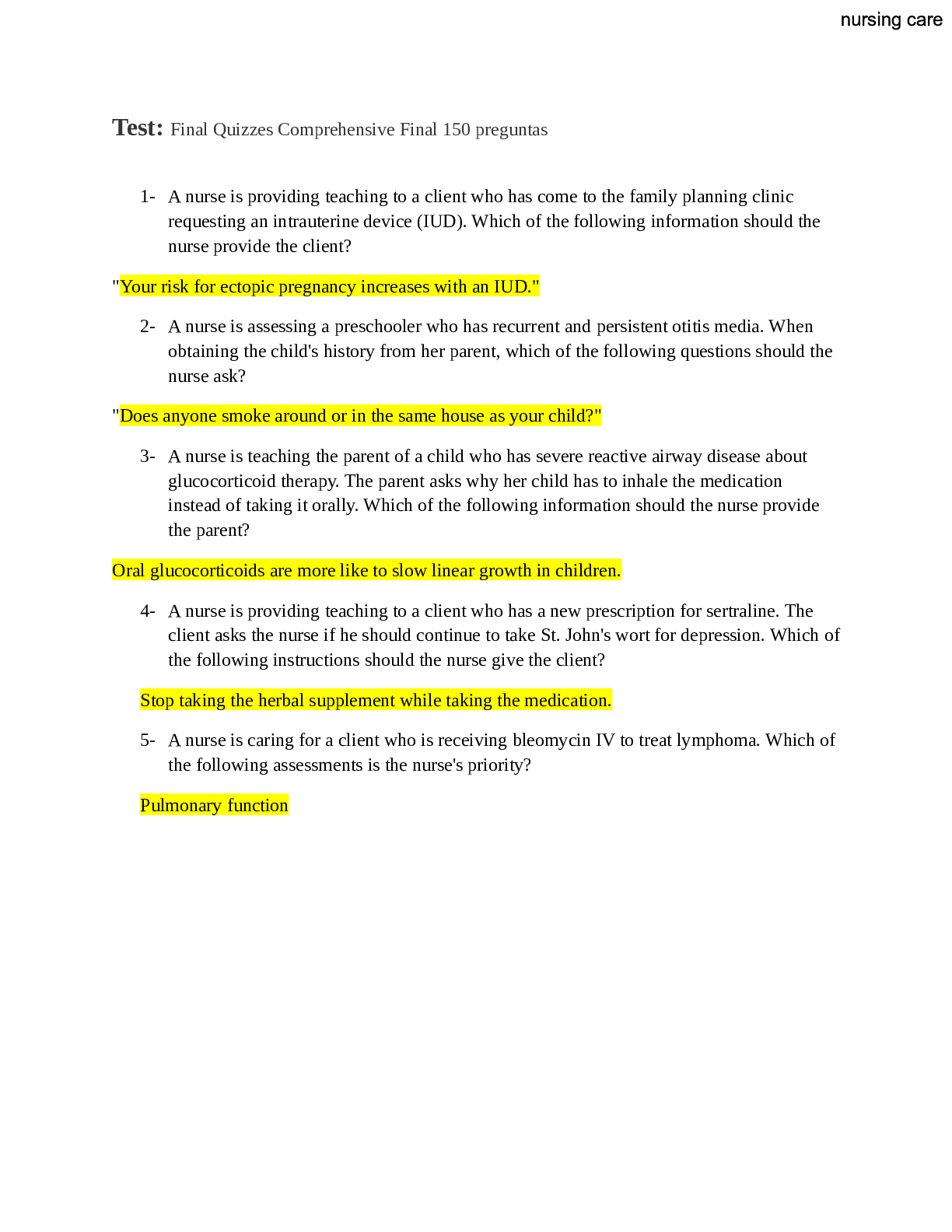
.png)

